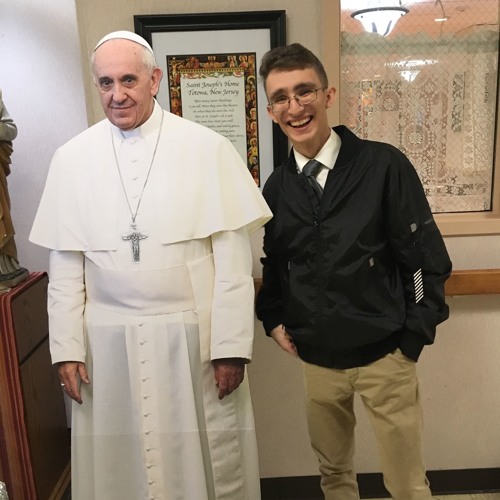Ford Field Corpse has become one of the most searched terms on the internet, sparking curiosity and intrigue among urban legend enthusiasts worldwide. The story revolves around a chilling tale that allegedly took place at Ford Field, a renowned sports stadium located in Detroit, Michigan. This urban legend has captured the imagination of many, blending fact and fiction into a gripping narrative that continues to evolve.
Ford Field, a stadium known for hosting major sporting events such as NFL games and concerts, has become the epicenter of this spine-chilling tale. The legend suggests that something sinister happened within its walls, leaving behind a mystery that continues to haunt the minds of those who dare to explore it. As we delve deeper into this phenomenon, we aim to separate fact from fiction and provide clarity on this intriguing topic.
This article will explore the origins of the Ford Field Corpse legend, analyze its credibility, and offer insights into why such urban legends captivate our collective imagination. By the end of this piece, you will have a clearer understanding of the truth behind this chilling tale, and perhaps, gain a new perspective on urban legends in general.
Read also:Shawsheen Tech Billerica A Comprehensive Guide To One Of Massachusetts Premier Vocational Schools
Table of Contents:
- Biography of Ford Field
- The Origin of the Ford Field Corpse Legend
- Is There Any Evidence Supporting the Legend?
- Psychology Behind Urban Legends
- Debunking the Myth
- Urban Legends in Popular Culture
- Impact on Local Communities
- Media Coverage and Misinformation
- Ford Field as a Tourist Attraction
- Conclusion and Final Thoughts
Biography of Ford Field
Ford Field is a state-of-the-art sports stadium located in the heart of Detroit, Michigan. Opened in 2002, it serves as the home stadium for the Detroit Lions of the National Football League (NFL). The stadium boasts a seating capacity of over 65,000 and has hosted numerous high-profile events, including concerts, conventions, and political rallies.
Key Facts About Ford Field
Below is a table summarizing the essential information about Ford Field:
| Location | Detroit, Michigan |
|---|---|
| Opened | 2002 |
| Capacity | 65,000+ seats |
| Primary Use | Home stadium for the Detroit Lions |
| Notable Events | NFL games, concerts, conventions |
Understanding the history and significance of Ford Field provides context for examining the urban legend associated with it.
The Origin of the Ford Field Corpse Legend
The Ford Field Corpse legend originated on social media platforms and online forums, where users shared their interpretations of a mysterious event that allegedly occurred within the stadium. The story typically revolves around the discovery of a corpse in an undisclosed area of Ford Field, sparking fear and speculation among fans and locals alike.
Popular Variations of the Legend
- One version suggests that the body was found during a routine cleaning after a major event.
- Another variation claims that the corpse was hidden in a maintenance tunnel beneath the stadium.
- A more dramatic retelling involves a security guard uncovering the body while patrolling the premises late at night.
Despite the lack of concrete evidence, these variations have contributed to the legend's widespread popularity.
Read also:New York Boulders A Comprehensive Guide To Climbing Adventures
Is There Any Evidence Supporting the Legend?
Upon closer examination, there is no credible evidence to support the existence of a "Ford Field Corpse." Local authorities and stadium officials have repeatedly denied any such incidents occurring within the premises. In fact, the legend appears to be a modern-day urban myth, fueled by misinformation and exaggerated storytelling.
Official Statements
According to a spokesperson for Ford Field, "There has never been a reported incident involving a corpse or anything of that nature within our facility. We take the safety and security of our visitors very seriously and have strict protocols in place to ensure a safe environment for all."
Furthermore, local law enforcement agencies have confirmed that no such cases have been reported in their records, further debunking the myth.
Psychology Behind Urban Legends
Urban legends like the Ford Field Corpse story resonate with people because they tap into our primal fears and curiosity. Psychologists suggest that these tales provide a form of entertainment while also serving as cautionary narratives. They often reflect societal anxieties and concerns, making them relatable and memorable.
Why Do People Believe in Urban Legends?
- They offer a sense of mystery and intrigue.
- They exploit our fear of the unknown and the supernatural.
- They are often shared through word-of-mouth, lending credibility to the story.
Understanding the psychological factors behind urban legends helps explain why they continue to captivate audiences despite being debunked.
Debunking the Myth
While the Ford Field Corpse legend may seem plausible at first glance, a closer look reveals several inconsistencies and red flags. For instance, the lack of credible sources and official statements supporting the claim raises significant doubts about its validity. Additionally, the absence of any forensic evidence or police reports further undermines the story's credibility.
Common Misconceptions
- The legend often conflates unrelated incidents or exaggerates minor occurrences.
- It relies on anecdotal evidence rather than factual data.
- It thrives on the power of suggestion, encouraging people to believe without critical analysis.
By critically analyzing the legend, we can better appreciate the importance of fact-checking and skepticism in evaluating such claims.
Urban Legends in Popular Culture
Urban legends have become a staple of popular culture, inspiring movies, books, and TV shows. From classic tales like Bloody Mary to modern legends like the Ford Field Corpse, these stories continue to captivate audiences worldwide. According to a study published in the Journal of Popular Culture, urban legends are more prevalent in today's digital age due to the rapid spread of information through social media platforms.
Examples of Urban Legends in Media
- The movie "The Ring" is based on the urban legend of a cursed videotape.
- TV shows like "Urban Legends" explore the origins and impact of these tales.
- Books such as "The Vanishing Hitchhiker" delve into the psychology behind urban legends.
These examples demonstrate the enduring appeal of urban legends in shaping modern storytelling.
Impact on Local Communities
While the Ford Field Corpse legend may seem harmless, it can have unintended consequences for local communities. For instance, it may deter visitors from attending events at the stadium due to unfounded fears. Additionally, it can damage the reputation of Ford Field as a safe and secure venue for family entertainment.
Addressing Community Concerns
- Stadium officials should actively communicate with the public to dispel myths and rumors.
- Local media outlets can play a role in promoting factual information and discouraging sensationalism.
- Community engagement initiatives can help build trust and foster a positive relationship between the stadium and its patrons.
By addressing these concerns, Ford Field can maintain its status as a premier destination for sports and entertainment.
Media Coverage and Misinformation
The role of media in propagating urban legends cannot be overstated. Sensational headlines and clickbait articles often contribute to the spread of misinformation, fueling the popularity of legends like the Ford Field Corpse. Responsible journalism is crucial in combating this trend and promoting accurate reporting.
Best Practices for Journalists
- Verify information from credible sources before publishing.
- Avoid sensationalizing stories for the sake of attracting readers.
- Provide context and background information to help readers understand the issue better.
By adhering to these principles, journalists can play a vital role in reducing the spread of urban legends and promoting informed discourse.
Ford Field as a Tourist Attraction
Despite the Ford Field Corpse legend, the stadium remains a popular tourist attraction in Detroit. Visitors are drawn to its impressive architecture, rich history, and vibrant atmosphere. Guided tours offer a unique opportunity to explore the stadium's inner workings and learn about its significance in the world of sports.
What to Expect on a Ford Field Tour
- Access to exclusive areas such as the locker rooms and press box.
- Insights into the stadium's operations and maintenance.
- Interactive exhibits and displays showcasing the Detroit Lions' history.
These experiences provide a fascinating glimpse into the world of professional sports and help counteract the negative perceptions created by urban legends.
Conclusion and Final Thoughts
In conclusion, the Ford Field Corpse legend is a fascinating example of how urban myths can capture the public's imagination. While there is no credible evidence to support the existence of such an incident, the story highlights the enduring appeal of urban legends in our culture. By critically analyzing these tales and promoting accurate information, we can better appreciate the power of storytelling while maintaining a healthy dose of skepticism.
We encourage readers to share their thoughts and experiences in the comments section below. Additionally, feel free to explore other articles on our website for more insights into urban legends and their impact on society. Together, we can foster a community of informed and engaged individuals who value truth and understanding above all else.


